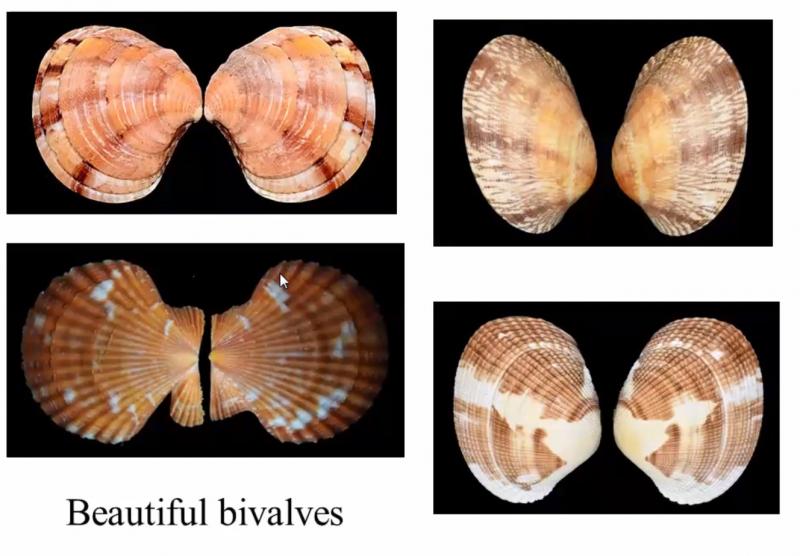
……….as Conchological Society member Bas Payne explained to Coastwise North Devon members.
The are over 2000 known species, of which over 800 are found in the UK.
The only equipment necessary is a good identification book, and a willingness to walk along the strandline, or search in sand and pebbles.
Adding records to the national database is important, as shell records are very scarce ( 3rd from top R) compared with, for example, butterflies or birds.
The change in location and frequency of mollusc species is sometimes not as expected (5th from top R) compared to other species, which show a northward drift with climate change.
Some of the stranger examples are shown R, with the purple shell (2nd pic, bottom R) being Jantina, which floats like a jellyfish, dangles stinging cells, and uses the poison from its prey for its own sting.
There's lots of unanswered questions awaiting answers, such as the reasons for the wide variety of colour and patterns on the same species, and whether variations between similar shells are simply local variations, or have real genetic differences. A lot of research work remains to be done in this area.
Bas' talk is available below to watch on YouTube (the cound quality from his depths-of-Dartmoor broadband is not too good, but audible) :-

